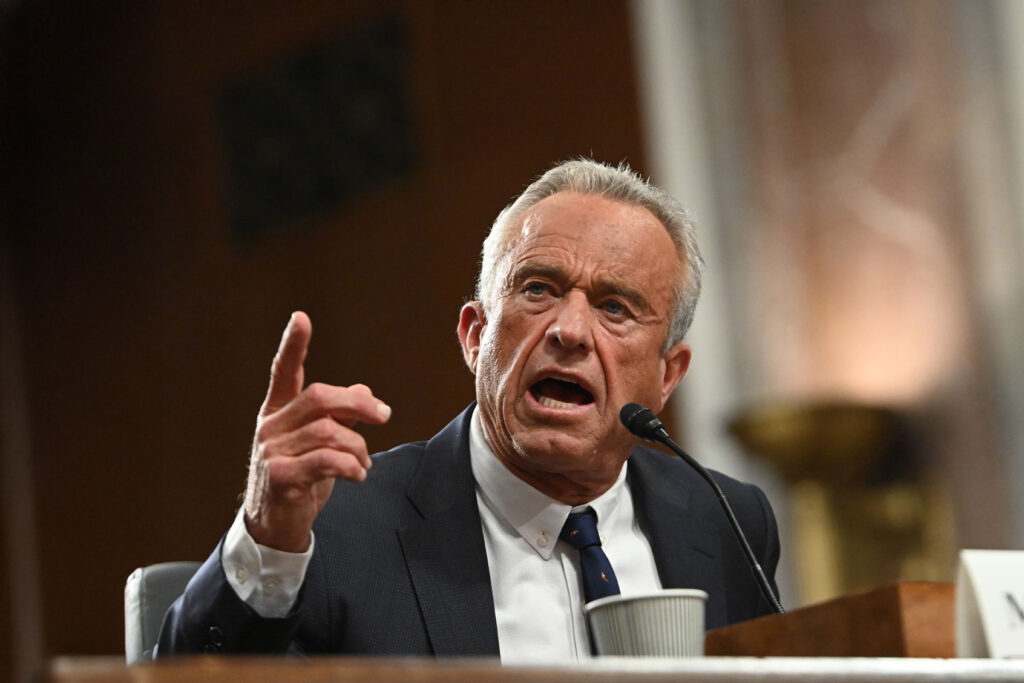
On September 4, 2025, Health and Human Services Secretary Robert F. Kennedy Jr. encountered intense questioning from the Senate Finance Committee regarding his controversial policies on vaccines, particularly those related to COVID-19 and mRNA technology. Kennedy acknowledged the success of Operation Warp Speed, the initiative launched under former President Donald Trump to expedite COVID-19 vaccine production, but he also reiterated his claims that COVID-19 vaccines cause significant harm, including death, especially among young individuals. These assertions lack scientific backing and have raised alarms among public health experts.
The session saw pointed inquiries from Senator Bill Cassidy, a physician from Louisiana who had previously supported Kennedy’s confirmation. Cassidy expressed concern over how recent changes in the Centers for Disease Control and Prevention (CDC) guidelines have led to confusion and limited access to vaccines. Kennedy’s response was dismissive, stating, “Well, you’re wrong.”
Kennedy’s stance includes a controversial decision to cut US$500 million in funding for 22 research contracts focusing on mRNA vaccine technology, redirecting these funds to traditional vaccine development methods. This switch to whole-virus vaccines, which present an entire virus in a weakened form, has left many scientists puzzled about its implications for public health.
Public Health Concerns and Calls for Accountability
Just days before the hearing, Trump publicly demanded pharmaceutical companies validate the effectiveness of COVID-19 mRNA vaccines, highlighting internal turmoil within the CDC following the firing of its director, Susan Monarez, and the resignation of four senior officials. Calls for Kennedy’s removal were echoed by several senators during the hearing, as public health experts and staff from the Department of Health and Human Services (HHS) expressed their discontent over his leadership.
Kennedy’s assertions about mRNA vaccines are at odds with established science. For instance, he referenced a non-peer-reviewed compilation purporting to detail harms caused by mRNA vaccines, which actually predominantly discusses the dangers of SARS-CoV-2 infection itself. The document fails to include extensive data demonstrating that mRNA vaccines effectively prevent severe illness and mortality.
The claims regarding the spike protein produced by mRNA vaccines, which Kennedy cited, misrepresent the science. While uncontrolled viral replication can lead to inflammation and tissue damage, the mRNA vaccines induce a controlled immune response that minimizes harm while effectively reducing viral presence.
Another point of contention is the rare side effect of myocarditis associated with mRNA vaccines. Initial reports indicated a slight increase in myocarditis cases among young men following vaccination, with a 2024 study identifying about 20 cases per million doses. However, the same study revealed that unvaccinated individuals faced an elevenfold higher risk of myocarditis after COVID-19 infection.
Debunking Misconceptions about Vaccine Effectiveness
Kennedy’s claims extend to the notion that mRNA vaccines contribute to mutations in the SARS-CoV-2 virus, potentially leading to vaccine-resistant strains. In reality, viral replication naturally produces mutations, and both mRNA and traditional vaccines serve to slow down this process. By decreasing viral replication, vaccines reduce the emergence of new variants rather than facilitating them.
Historically, both mRNA and whole-virus vaccines have proven effective against COVID-19, with mRNA vaccines demonstrating superior efficacy in preventing severe illness during the emergence of variants like delta and omicron. Despite a decline in overall infection prevention rates, mRNA vaccines maintained effectiveness in reducing hospitalizations among vaccinated individuals.
The rapid adaptability of mRNA technology allows for swift updates to vaccines, a crucial advantage in responding to emerging infectious diseases. Development times for mRNA vaccines can be reduced to two to three months, whereas traditional vaccines require extensive isolation and propagation of the virus.
Looking forward, mRNA technology holds promise beyond COVID-19, with research ongoing for vaccines targeting diseases such as HIV and various cancers. Despite the current shift in funding priorities from the National Institutes of Health (NIH) toward traditional vaccine technologies, the potential for mRNA vaccines to provide broader immunity against evolving viruses remains significant.
This critical shift in focus raises concerns about the implications for future public health preparedness, with experts warning that abandoning mRNA research could result in missed opportunities to develop effective vaccines against emerging threats.
As Kennedy’s policies continue to shape health policy in the United States, the need for accurate information and science-based decision-making has never been more urgent. The stakes are high, as the choices made today will impact public health outcomes for generations to come.






